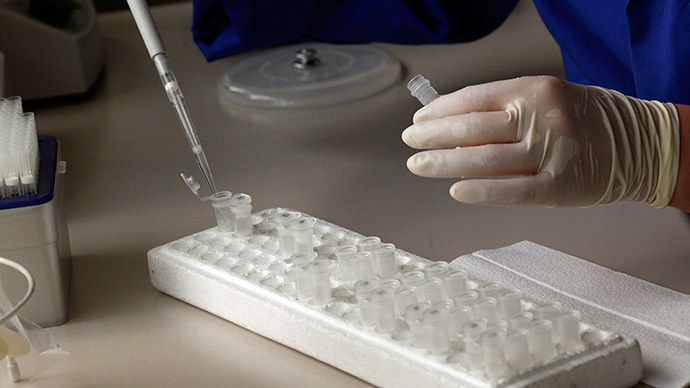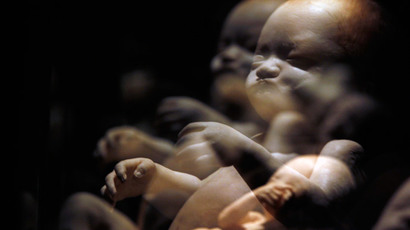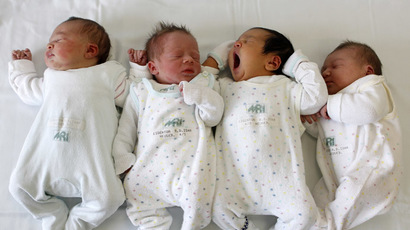No ‘rainbow families’: Canadian fertility clinic bans patient from using non-white donor

A single Canadian woman, who sought in vitro fertilization in the only local clinic in Calgary, has been prohibited from using donors of a different ethnicity to avoid “creating rainbow families.”
The 38-year old woman, who requested to use only her first name, Catherine, told the Calgary Herald that “everything went downhill” when last March she learned that she could only use sperm, eggs or embryos from donors who were white, like her.
“I was absolutely floored,” she told the newspaper.
When asked why she did not want to choose somebody of her own “cultural background,” Catherine said there were many reasons why.
One of the main reasons was that after she picked out donors who met required standards, had a good health history and a compatible blood type, a list of potential biological fathers for her child was narrowed-down to about 20 Caucasian donors. Moreover, many of them had already been used by several other patients in the area.
“Frankly, it’s appalling how many people have the same donors, probably because of this policy,” she said. “A friend of mine just went through this process and used the donor that I would have picked.”
Despite that, Dr. Calvin Greene The Regional Fertility Program (RFP), where Catherine went to undergo in vitro fertilization, is firm on his position.
Greene stressed that the RFP would deny couples or singles who insist on using donors of a different ethnicity under a policy in operation since the center was opened in the 1980’s.
“I’m not sure that we should be creating rainbow families just because some single woman decides that that’s what she wants,” Dr. Calvin Greene, the clinic’s administrative director told the Herald. “That’s her prerogative, but that’s not her prerogative in our clinic.”
Indeed, the statement on the RFP’s webpage says:

Also, doctors at the clinic, Greene said, feel “a child of an ethnic background should have the ability to be able to identify with their ethnic roots.” He added patients should have a “cultural connection” to their donors.
To support his argument, Greene said that the rules at the RFP follow the spirit of Canada’s Assisted Human Reproduction Act, under which doctors should place priority on the well being of potential children and refrain from producing “designer” babies.
“She needs to look harder, because I can tell you, reasonable people can easily find a suitable donor,” Greene argued and added that there are lots of quality Caucasian donors available.
Greene insists that given today’s multicultural society and demographic predictions that Caucasian people will soon be the minority in many Canadian cities, “there is no way to dictate what a given family should look like.”
As for Catherine, unlike many patients, she says she is not all that concerned about the color of her potential child’s skin. More important is the personality and health history, her child might inherit from its biological father. Considering other ethnicities significantly increased her options, she told the Herald.
The Regional Fertility Program (RFP), where Catherine went to have in vitro fertilization, is the only fertility clinic in Calgary. This means that Catherine must drive to Edmonton or fly to Vancouver to seek alternative solutions.














